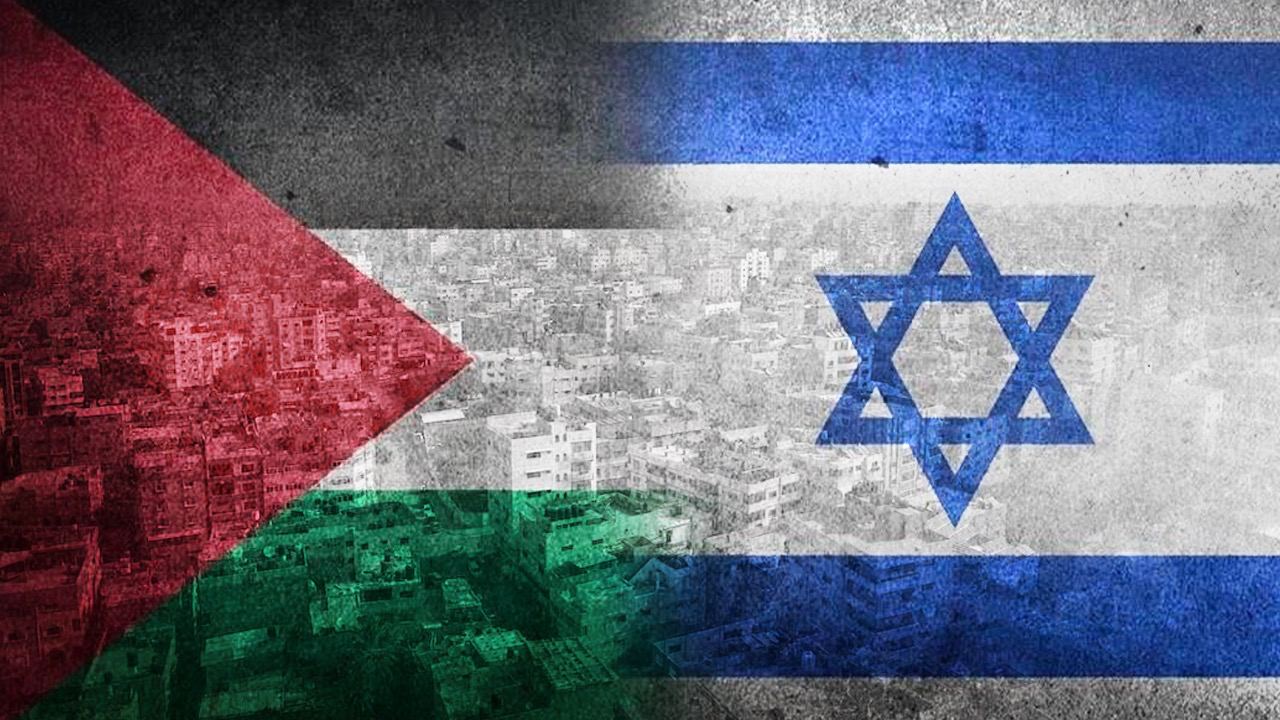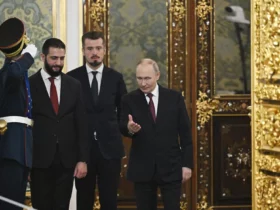By Şafak Erdem
Hamas demands a ceasefire, but only on the condition that their demands are met. Who tends to accept Hamas’s terms and to what extent and with what kind of amendments and the relative political, military, diplomatic and morale powers of the sides seem to determine the final outcome of the ceasefire negotiations. Egypt, Qatar and the US are mediators in the negotiations. And as announced by Hamas, it “demands that Egypt, Qatar, Türkiye, Russia and the UN be guarantors of any agreement in their ceasefire proposal.”[1]
Three-phase ceasefire proposal
Hamas’s ceasefire proposal has not been made public, but “seen by Reuters” and exposed the details of the text of the proposal.[2] Three-phase ceasefire proposal contains “to end military operations with a sustained de-escalation, exchange hostages and prisoners, end an Israeli blockade of Gaza, allow displaced residents to return home and ramp up aid supplies.” Indeed no surprise, since these have been the main demands of Hamas or other political-military movements and organizations in Gaza and Palestine in the last 15-20 years.
Israel rejects, the US doesn’t
It seems clear that the Israeli government is not warm to such a proposal.
Benjamin Netanyahu, in the first place, openly rejects the proposal. He says that Hamas’s position is “delusional”, terms are “bizarre”, negotiations are “not going anywhere” and pledges “to destroy the Islamist movement”. For him “There is no other solution but a complete and final victory.”
The Netanyahu government’s military aims and plans have been met with a precautionary approach since the very beginning. On 17th October, ten days after Hamas’s operation, White House spokesperson John Kirby had said “He’ll be asking some tough questions, he’ll be asking them as a friend, as a true friend of Israel, but he’ll be asking some questions of them” just before Joe Biden’s flight to Israel. This “toughness” was reflecting the doubts of the US about Israel’s military actions and their possible consequences, the Biden government and Pentagon provided full support politically and militarily though.
Besides, it is known that there is a strong opposition to Netanyahu in general and objections to his military policy specifically, many of which have been voiced in the Israeli press.
Ido Vock and Lyse Doucet in BBC writes:
“While Prime Minister Benjamin Netanyahu insists the goal is ‘total victory’, Israeli officials acknowledge that is still a long way off and some insist it is not even achievable militarily.
But the Israeli military is still focused on destroying Hamas brigades and hunting down Hamas leaders. And Mr Netanyahu, ever mindful of his own political survival, is under pressure from right-wing allies who warn they’ll bring down his government if he makes any concessions.”[3]
Why the US consents to a ceasefire?
To agree on a ceasefire, the US’s consent is necessary, either voluntarily or by compulsion. The US seems ready for a ceasefire, albeit it remains unclear on what terms it would agree to. Joe Biden called Hamas’s ceasefire proposal “a little over the top”, yet the US government permanently expressed the importance of reaching an agreement.
Then, the question of why the US, the main international pillar of Israel from the very beginning up until now, the main supporter of Israel’s all kinds of political and military actions, including the latest one in Gaza, consents to a ceasefire is crucial.
Three reasons stand out here.
Firstly, as widely acknowledged, Biden and the US government are not very happy with Netanyahu, to put it simply.
Losing credibility and capability to convince people
Secondly, as a result of Israel’s immoral actions, Israel, and therefore the US and Western states that support it have been losing their credibility and capability to convince people of their discourse of “human rights”, “freedom”, etc. in the eyes of peoples of the world, almost even among its own people.
Mass demonstrations in the centers shook the ground of their Palestine policy based on ignorance. This awakening changed public opinion slowly but fundamentally. This is reflected in the manner and news preferences of the Western media, which initially had been blind to Israel’s immoral actions.
A striking example of that can be read from the BBC’s report on the “transatlantic statement” which was passed to the British channel: “More than 800 serving officials in the US and Europe have signed a statement warning that their own governments’ policies on the Israel-Gaza war could amount to “‘grave violations of international law’”. The statement says that “Israel has shown ‘no boundaries in its military operations in Gaza which has resulted in tens of thousands of preventable civilian deaths; and… the deliberate blocking of aid… putting thousands of civilians at risk of starvation and slow death”, “their administrations risk being complicit in ‘one of the worst human catastrophes of this century’ but that their expert advice has been sidelined.” And “One senior British official who has endorsed the statement told the BBC of ‘growing disquiet’ among civil servants.”
The statement also includes some critical phrases like these governments are taking the risk of contributing to “war crimes and even ethnic cleansing or genocide”.
The signatures of the statement contain “civil servants from the US, the EU and 11 European countries including the UK, France and Germany.”[4]
Israel’s clashes with relatively neutral organisations and their leaders, such as Secretary-General of the United Nations António Guterres and the head of the United Nations Relief and Works Agency for Palestine Refugees Philippe Lazzarini, are the result of this discomfort in the Western world. Likewise, that with Brazilian President Lula da Silva said following his words that what is happening in Gaza “isn’t a war, it’s a genocide”.
“Normalisation” stalled
The third reason is that the path of “normalisation” that the US wanted to establish with the Arab world which gained momentum with the Abraham Accords stalled with the war that started on 7 October. As long as Israel does not change its attitude and actions towards Palestine, it is unlikely that this path could be reopened. At this point, Saudi Arabia and Egypt are the main countries.
Saudi Arabia’s Foreign Minister Faisal bin Farhan lastly said “We have no relationship with Israel. Our priority is to resolve the humanitarian situation in Gaza. Our priority is the humanitarian crisis in Gaza and the establishment of an independent Palestinian state before normalization with Israel” and “The only secure way to solve the problem in the region is through the commitment of the US and Israel to a two-state solution.”[5]
The impact of the people in the region
Ramazan Bursa, criticizing the Muslim countries “remaining silent and leaving Palestine all alone” said in an interview with UWI: “Despite their governments, the peoples of these countries are religious and sensitive towards Palestine. Therefore, regardless of how you come to power, let’s say you can be a king or inherit the throne from your father, if you want to stay in power, you need to take the desires and wishes of the people into account to some extent.”[6] These words might be enlightening to understand the current obstacle the US is facing about its “normalization plan”.
Rafah and Sinai
The obstacle to the US is currently concentrated in Egypt, specifically in Rafah and Sinai, Israel’s long-standing targets. Again, Ramazan Bursa had explained in the interview that “Sinai was deliberately evacuated through counter-terrorism operations” and “It was very planned: The very intention of these operations was to evacuate the area in terms of population” to render the region available for the Gazans that Israel had planned to expel since the very beginning.
Bursa also shared the information that “a team of Israeli security officials and Mossad spent a few hours in Egypt meeting with the Director of the Egyptian General Intelligence Directorate Abbas Kamil. They assured Egypt that there would be no permanent Israeli operations on the Egypt-Palestine border.” Now Netanyahu confirms that Israeli forces have been ordered to prepare for an operation in Rafah.
The red line of Egypt
Egypt regards such an operation as a red line and is gravely concerned. The Associated Press reported that “Egypt is building a wall and is leveling land near its border with the Gaza Strip ahead of a planned Israeli offensive” and shared satellite photos showing that.
The AP, in another report on the issue, wrote that “Two Egyptian officials and a Western diplomat told that Egypt may suspend the peace treaty if Israeli troops invade Rafah.”[7]
Great danger for “normalisation”
Jon Gambrell comments “a scenario that could threaten a 1979 peace deal with Israel that’s been a linchpin for regional security” on the looming Israeli offensive.[8] The AP, in another report on the issue, wrote that “Two Egyptian officials and a Western diplomat told that Egypt may suspend the peace treaty if Israeli troops invade Rafah.” Given Egypt’s importance in the Arab world, and its potential as a trigger that could completely wipe out the “normalisation plan”, this is an explanatory observation for the US being in favor of a ceasefire.
Yes, for these reasons, the US opposes some of the actions Israel intends to and is now in favor of a ceasefire.
For Palestine and the region: there exists another choice
However, it should not be forgotten that the “normalisation plan” and the Ibrahim Accords of the US was a process that goes hand in hand with ignoring the Palestinian and Gazan people’s struggle for an independent state and justice and leaving it to its fate in neglection. In the new environment that may open up in the event of a ceasefire, the US’ stance will again not be one beneficial for an independent Palestine, and therefore for the deep-rooted statelessness, terrorism, ethnic conflict, fragmentation and lack of independence in West Asia.
In this regard, it gains importance that Egypt, Russia, Türkiye and Qatar are on the agenda as guarantors alongside the United Nations. Regardless of whether such a formula will be implemented in the near or distant future, two of the three major states of West Asia with a long tradition of statehood, Egypt and Türkiye (Iran is not included here as it is unlikely to negotiate with Israel), and Russia, with its significant past and present engagement in West Asia, have the potential to provide the necessary “power constellation” to pave a favorable course for both Palestine and the region.
[1] https://www.aa.com.tr/tr/dunya/hamas-ateskes-teklifimiz-icin-turkiye-katar-misir-bm-ve-rusyanin-garantor-olmasini-istedik/3130928
[2] https://www.reuters.com/world/middle-east/hamas-ceasefire-proposal-details-2024-02-07/
[3] https://www.bbc.com/news/world-middle-east-68225663
[4] https://www.bbc.com/news/world-us-canada-68177357
[5] https://www.aa.com.tr/en/middle-east/independent-palestinian-state-prerequisite-before-normalization-with-israel-saudi-arabia/3140785
[6] https://uwidata.com/32686-operation-al-aqsa-storm-reasons-and-consequences-for-gaza-al-quds-and-the-region/
[7] https://apnews.com/article/israel-egypt-peace-treaty-hamas-war-rafah-46df917a975ed4c4f88d5de01a8508e0
[8] https://apnews.com/article/israel-palestinians-gaza-egypt-wall-07a40fddeaf9dbc82c2a33e1f1614419

















Leave a Reply